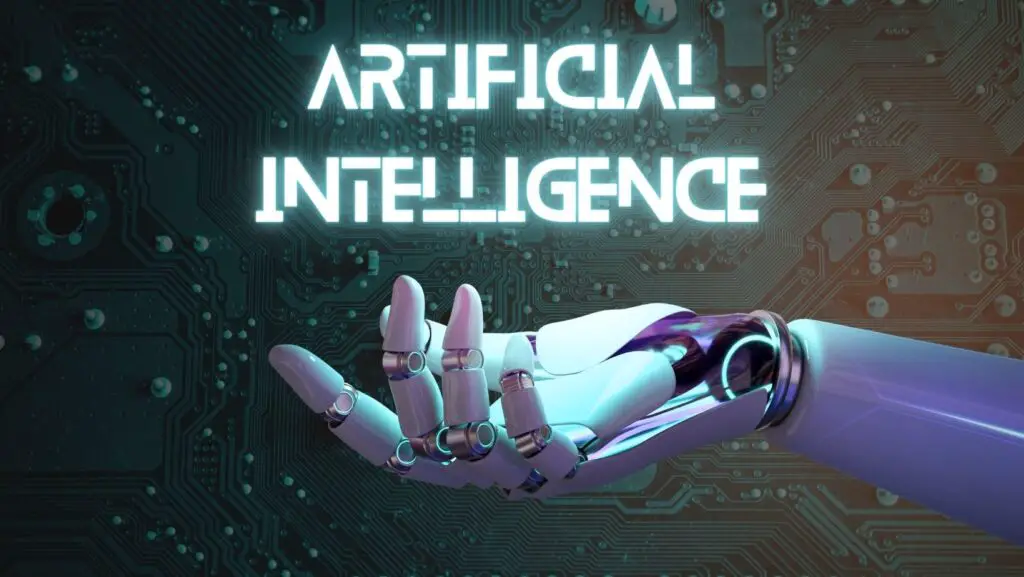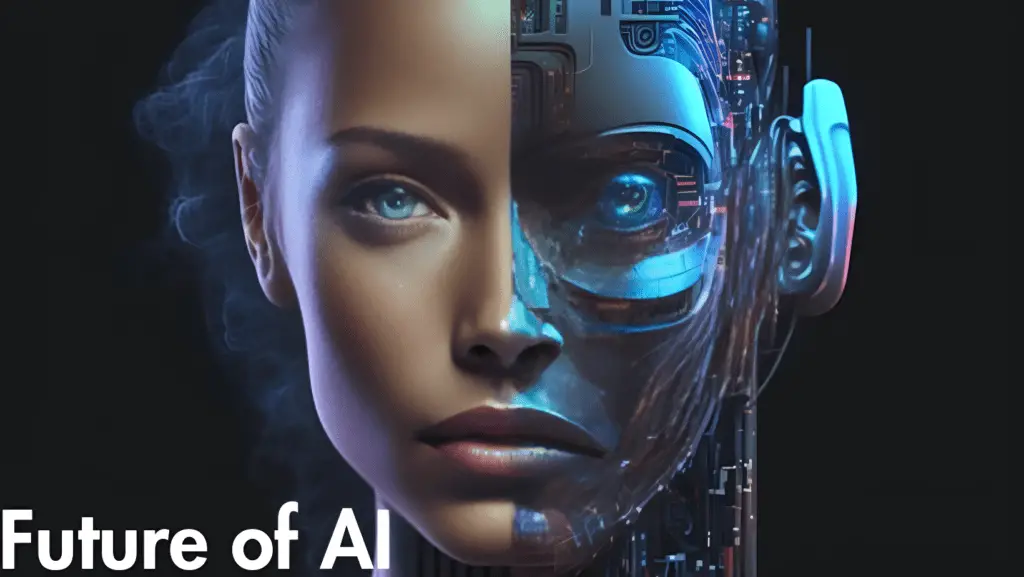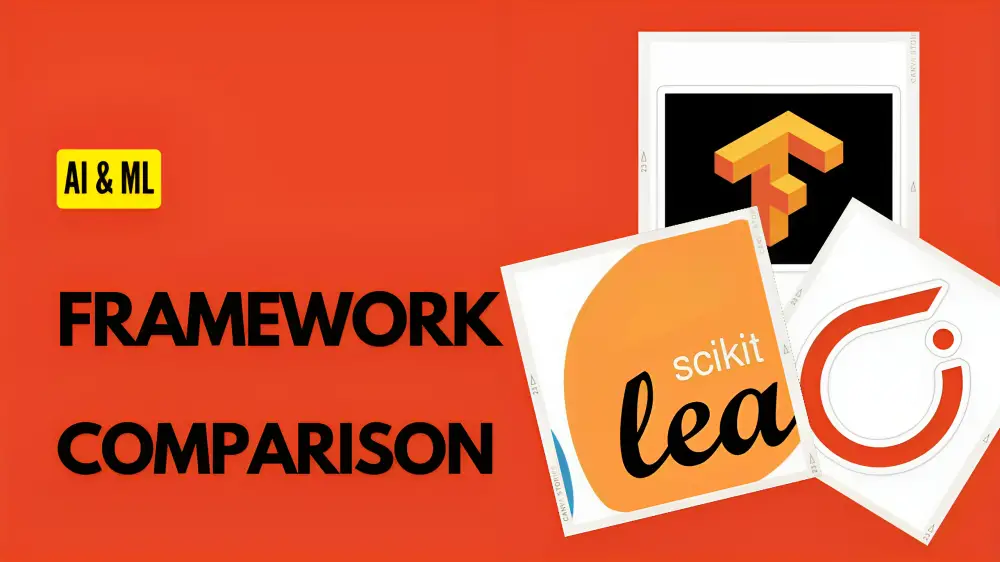As we continue to look for ways to make our lives easier and more efficient, artificial intelligence (AI) has become a hot topic of discussion. But what is AI exactly? Simply put, AI refers to computer systems that are designed to perform tasks that would typically require human intelligence.
The concept of AI has been around for decades, with early forms dating back to the 1950s. But it wasn’t until recent years, with advancements in technology, that AI has really taken off. Today, AI is used in a variety of industries and applications, from virtual assistants like Siri and Alexa to self-driving cars.
In its current state, AI is still in the early stages of development, with many experts believing that we have only scratched the surface of its potential. As more and more data is generated, the potential for AI to provide insights and predictive analytics increases.
Overall, AI has the potential to transform the way we live and work in significant ways. But as with any new technology, there are challenges to overcome. In the following sections, we will explore the benefits of AI, industries that have been transformed by AI, challenges to implementation, and the future of AI.
Summary:
- AI is a computer system designed to perform tasks that require human intelligence.
- Early forms of AI date back to the 1950s.
- Recent technological advancements have accelerated the development and adoption of AI.
- AI is used in industries and applications such as virtual assistants (Siri, Alexa) and self-driving cars.
- AI has the potential to transform the way we live and work significantly.
- The growth of data enhances AI’s potential for insights and predictive analytics.
- Challenges exist in implementing AI effectively.
Benefits of AI

Introduction to AI involves understanding what AI is, its history, and the current state of AI. However, understanding the benefits of AI is also crucial. AI has numerous benefits that cut across different industries. It increases efficiency, reduces costs, and improves customer experience.
By incorporating AI in their operations, companies can cut down on processing time, thus increasing efficiency. For instance, in manufacturing, AI can optimize production schedules, minimize downtimes, and help predict breakdowns. This levels up the manufacturing industry by maintaining up-time making the products delivered on time, thus increasing efficiency.
AI also reduces costs by identifying and eliminating bottlenecks in business processes. In banking and finance, AI can facilitate fraud detection, which leads to cost savings by preventing financial loss. Additionally, AI-powered chatbots can provide customers with 24-hour support, reducing the need for human customer service representatives.
Improving customer experience is another benefit of AI. With AI, businesses can boost customer satisfaction, engagement, and loyalty by providing personalized recommendations. A prime example of this is in the retail industry, where AI algorithms can analyze customer data to recommend products or predict future purchases, thus improving customer experience by providing the right product at the right time.
In conclusion, the benefits of AI are cut across different industries. AI offers a wide range of benefits, including increasing efficiency, reducing costs, and improving customer experience. Its integration into businesses is essential in unlocking its power and potential.
Summary:
- 🔄 AI increases efficiency by cutting down processing time and optimizing production schedules.
- 💰 AI reduces costs by identifying and eliminating bottlenecks in business processes and aiding in fraud detection.
- 🤖 AI improves customer experience by providing personalized recommendations and 24-hour support through chatbots.
- 📈 AI predicts breakdowns and minimizes downtimes, leveling up the manufacturing industry.
- 🛒 AI algorithms analyze customer data to recommend products, enhancing customer satisfaction in retail.
Industries Transformed By AI
The advancements in Artificial Intelligence (AI) have drastically transformed various industries. With AI-powered tools and technologies, these industries have increased efficiency, reduced costs, and improved overall customer experience.
One such industry is healthcare. AI has equipped healthcare with improved drug discovery and personalized treatments. It has helped doctors analyze patient data with greater accuracy and make more informed decisions. AI chatbots have also been developed to help patients receive medical assistance online.
Similarly, the finance industry has benefitted from AI by detecting fraud and reducing risks. AI-powered algorithms have made stock trading more efficient and effective. It has also enabled banks to offer personalized financial products to their customers.
Retail companies have also dramatically changed the way they operate with the introduction of AI. From chatbots and facial recognition software to improving customer experience to automating backend tasks and optimizing supply chain management, the possibilities of AI in the retail industry are endless. Customers can also benefit from targeted recommendations based on their shopping history.
Lastly, the manufacturing industry has also witnessed significant improvements with AI-powered machines and smart factory technologies. AI-powered predictive maintenance tools have helped prevent equipment breakdowns and save costs. It has also helped companies make data-driven decisions to optimize production processes.
With the integration of AI technology, these industries have taken a giant leap toward a more efficient and productive future. However, challenges to its implementation, such as data privacy and ethical concerns, must be addressed to ensure its benefits are available to all.
Summary:
- Healthcare industry:
- AI enables improved drug discovery and personalized treatments.
- Doctors can analyze patient data accurately and make informed decisions.
- AI chatbots provide online medical assistance.
- Finance industry:
- AI detects fraud and reduces risks.
- AI algorithms improve efficiency in stock trading.
- Banks offer personalized financial products.
- Retail industry:
- AI tools like chatbots and facial recognition enhance customer experience.
- Backend tasks are automated, and supply chain management is optimized.
- Customers receive targeted recommendations based on their shopping history.
- Manufacturing industry:
- AI-powered machines and smart factory technologies improve productivity.
- Predictive maintenance tools prevent equipment breakdowns and save costs.
- Data-driven decisions optimize production processes.
Challenges to the Implementation of AI

When it comes to implementing AI, there are several challenges that businesses must address before they can reap the benefits of this transformative technology.
One critical challenge is data privacy and security. As AI systems rely on vast amounts of data, businesses must ensure that they are collecting and using data in compliance with regulations and ethical considerations. Any data breaches or misuse can have significant reputational and financial costs.
Another challenge is job displacement. While AI can increase efficiency and lower costs, it can also replace human workers in certain tasks and industries. Therefore, businesses must consider the impact of AI on their workforce and plan for reskilling and retraining programs accordingly.
Finally, there are ethical concerns around the use of AI. For example, AI algorithms can perpetuate bias and discrimination if they are not designed and tested carefully. Additionally, there are questions about the accountability of AI systems and their human operators in the case of errors or accidents.
But while these challenges are significant, they should not deter businesses from exploring the potential of AI. By proactively addressing these challenges and designing ethical AI systems, businesses can unlock the full power of AI and transform their industries.
After all, AI has the potential to revolutionize healthcare, finance, retail, manufacturing, and other industries through improved decision-making, enhanced customer experiences, and increased efficiency. As AI continues to evolve and integrate with other technologies like the Internet of Things, future possibilities are truly limitless.
In short, while implementing AI is not without its challenges, businesses that can navigate these hurdles stand to gain immensely from this transformative technology.
Summary:
Implementing AI poses challenges in data privacy, job displacement, and ethical concerns. However, businesses can overcome these challenges and unlock the transformative potential of AI in various industries.
Future of AI

Can you believe that we’re in a time where artificial intelligence is advancing at an unprecedented rate? So, what does the future of AI look like?
For starters, AI will have a greater integration with the Internet of Things (IoT). Simply put, AI will be everywhere, from our homes to our workplaces. It will make our lives easier by controlling our homes’ temperature and helping us organize our schedules.
Advancements in natural language processing will also be a game-changer. Asking Siri or Alexa questions can feel robotic now, but with advancements in AI, they will become more like a human companion. Soon enough, we will be having in-depth conversations with robots, making them more like friends than anything else.
But what is the potential for Singularity? Singularity is a time, predicted by experts when AI will surpass human intelligence. The possibility of this happening might be a bit scary, but it might as well be seen, as an amazing breakthrough for humanity.
As exciting as the future might seem, it’s important to note that there might be more challenges in the way of AI’s advancement, such as ethical concerns and job displacement. It’s important for developers to ensure that AI isn’t developed haphazardly but rather with consideration of its implications.
Summary:
- AI integrates with IoT, controlling homes and aiding scheduling.
- Advancements in natural language processing make AI more human-like.
- Singularity poses potential breakthroughs and scary implications.
- Ethical concerns and job displacement are challenges.
- Responsible development is crucial.
Conclusion
So, there you have it – a comprehensive overview of the power of AI and its transformative impact on industries. We’ve seen how AI can increase efficiency, reduce costs, and improve the customer experience across industries such as healthcare, finance, retail, and manufacturing.
However, as with any new technology, there are challenges to its implementation, such as data privacy and security, job displacement, and ethical concerns. Despite these challenges, the future of AI looks bright with the potential for integration with the Internet of Things, advancements in natural language processing, and even the possibility of singularity.
Overall, AI has a crucial role to play in shaping the future of industries, and it’s up to us to harness its power ethically and responsibly. Thanks for reading, and we hope you’ve gained some valuable insights from this piece!




